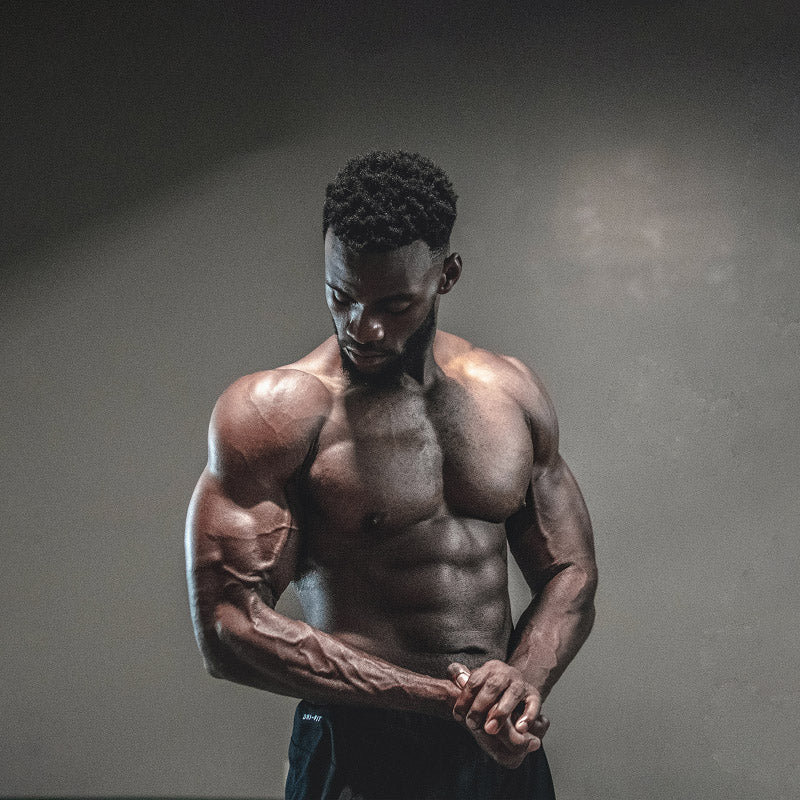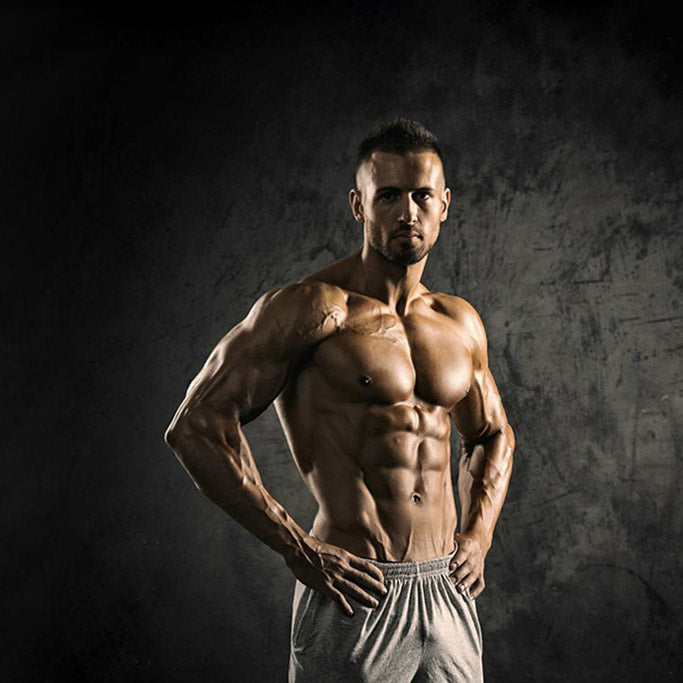Best Protein Rich Foods
If you’re looking to fuel your body with the right nutrients, protein rich foods should be at the top of your grocery list. Whether you want to build muscle, lose weight, or maintain a healthy diet, getting enough protein is crucial. But what are the best high protein foods, and how can you incorporate them into your diet? In this guide, we’ll dive deep into the top protein sources for both meat-eaters and vegetarians, helping you choose the best options for your lifestyle. Plus, we’ll answer the most frequently asked questions, from how much protein do I need to the benefits of whey protein concentrate for muscle growth.
High Protein Foods: The Best Sources for Meat-Eaters
When it comes to muscle building protein, animal-based proteins are some of the most complete sources. Incorporating these protein rich foods into your daily diet not only provides a powerhouse of nutrients but also delivers all the essential amino acids your body needs for optimal muscle recovery, fat loss, and overall health. Every serving of lean meat offers a balanced combination of bioavailable proteins that work synergistically to repair and build muscle tissues, boost metabolism, and accelerate recovery after intense workouts. For athletes and gym enthusiasts, these foods become the cornerstone of a rigorous training regime, ensuring that every workout is supported by the necessary fuel for strength gains and performance improvement. By choosing these nutrient-dense animal proteins, you're setting the stage for enhanced endurance, faster muscle recovery, and a robust foundation for overall well-being.
1. Chicken Breast
One of the leanest and most popular protein rich foods, chicken breast is a staple in many fitness enthusiasts’ diets. It’s packed with high-quality protein while being low in fat, making it ideal for those following a healthy protein diet for weight loss. This food provides approximately 31 grams of protein per 100 grams.
2. Lean Beef
Red meat, particularly lean beef, is loaded with protein and essential nutrients like iron and B vitamins. A study in the Journal of Nutrition found that beef protein can help enhance muscle mass and strength when combined with resistance training. Lean beef typically delivers around 26 grams of protein per 100 grams.
3. Salmon
Not only is salmon a fantastic high protein food, but it’s also rich in omega-3 fatty acids, which support heart health. According to research published in The American Journal of Clinical Nutrition, consuming fatty fish like salmon can help reduce inflammation and improve muscle recovery. Salmon provides roughly 22 grams of protein per 100 grams.
4. Tuna
If you’re looking for an affordable protein rich food, tuna is a great option. It’s incredibly lean and contains a whopping 25 grams of protein per serving.
5. Turkey
Another lean source of protein, turkey is excellent for meal prep and contains fewer calories than beef while still offering a solid protein punch. Turkey generally provides around 29 grams of protein per 100 grams.
6. Pork Tenderloin
Pork is often overlooked, but tenderloin is one of the leanest cuts, providing high-quality protein with minimal fat. Pork tenderloin delivers approximately 22 grams of protein per 100 grams.
7. Shrimp
If you want a low-calorie, high-protein food, shrimp is an excellent choice. It's virtually fat-free and contains important amino acids for muscle recovery. Shrimp offers about 24 grams of protein per 100 grams.
Vegetarian High Protein Foods
Not eating meat? No problem! Many vegetarian foods are packed with protein and can help you count protein intake effectively. Vegetarian diets can be just as effective in supporting muscle growth and recovery when they include a diverse range of protein sources. By integrating items like eggs, Greek yogurt, tofu, and various legumes into your meals, you ensure a comprehensive intake of essential amino acids that are crucial for building muscle and maintaining vitality. These protein rich vegetarian foods not only make it easy to track your intake using a protein calculator but also offer a variety of flavors and textures that make every meal a delightful experience. Embracing these good foods allows you to sustain a healthy, balanced diet while achieving your fitness goals, proving that a meat-free lifestyle can be equally potent in fueling your body and supporting long-term strength and wellness.
1. Eggs
Eggs are one of the best sources of high-quality protein, with 6 grams per egg. They also contain essential vitamins and minerals that support muscle growth and weight loss. On average, eggs provide roughly 13 grams of protein per 100 grams.
2. Greek Yogurt
Compared to regular yogurt, Greek yogurt is packed with almost twice the protein. It’s also rich in probiotics, which support gut health. Typically, Greek yogurt contains about 10 grams of protein per 100 grams.
3. Cottage Cheese
A favorite among bodybuilders, cottage cheese is slow-digesting, making it an excellent option before bed to prevent muscle breakdown. Cottage cheese generally offers around 11 to 12 grams of protein per 100 grams.
4. Lentils
One of the best vegan foods, lentils offer a powerful protein boost with 18 grams per cup. Plus, they’re high in fiber, which helps with digestion. When cooked, lentils provide approximately 9 grams of protein per 100 grams.
5. Quinoa
Unlike most grains, quinoa is a complete protein, meaning it contains all nine essential amino acids. This nutritious grain offers roughly 4.4 grams of protein per 100 grams when cooked.
6. Tofu
Derived from soybeans, tofu is a staple in many vegetarian diets. It absorbs flavors well, making it a versatile ingredient in various dishes. Firm tofu typically provides about 8 grams of protein per 100 grams.
7. Chickpeas
Chickpeas, or garbanzo beans, are packed with protein and fiber, making them a great addition to any diet. They deliver around 9 grams of protein per 100 grams when cooked.
8. Almonds & Peanut Butter
Nuts are an excellent source of plant-based protein, especially almonds and peanut butter, which also provide healthy fats. Almonds and peanut butter generally offer between 21 to 25 grams of protein per 100 grams, depending on the specific product.
9. Whey Protein
For those following a vegetarian diet but still looking to optimize their protein intake, whey protein is a game-changer. It is derived from milk and provides high-quality, fast-digesting protein essential for muscle recovery. Whey is also a muscle building protein powder that enhances strength, performance, and endurance. Many athletes and fitness enthusiasts use it to support muscle growth, especially when whole food sources aren’t enough. Brands like NutriClaw offer premium whey protein concentrate, which provides a clean, high-protein formula designed for maximum muscle recovery while fitting into a healthy foods diet. A serving contains approximately 27 grams of protein per 30 grams cup. Alex, a 28-year-old fitness enthusiast, struggled to gain muscle despite eating plenty of high protein foods. After incorporating NutriClaw Whey Protein into his diet, he noticed a significant improvement in muscle recovery and strength. Within three months, he gained 8 pounds of lean muscle, improved his endurance, and felt more energized throughout the day.
Frequently Asked Questions About Protein Rich Foods
Understanding protein rich foods is key to building a strong, healthy body. Below are some of the most common questions people ask when trying to optimize their protein intake for muscle growth, weight loss, and overall health.
1. What are the best protein rich foods for weight loss?
If your goal is to lose weight while maintaining muscle, focus on lean protein sources like chicken breast, egg whites, Greek yogurt, and lentils. These foods keep you full longer, reducing overall calorie intake. A study in The American Journal of Clinical Nutrition found that a high-protein diet boosts metabolism and reduces hunger hormones, making weight loss easier.
2. Is plant-based protein as effective as animal protein?
Plant-based proteins can be just as effective as animal proteins if you consume a variety of sources. Foods like quinoa, lentils, tofu, and chickpeas provide essential amino acids. However, whey protein concentrate remains one of the most efficient sources for muscle recovery. If you're following a vegetarian diet, consider adding high-quality plant-based protein powders to ensure adequate intake.
3. How can I count protein intake without tracking every meal?
Using a protein calculator is an easy way to estimate your daily needs based on your weight, age, and activity level. Alternatively, following general guidelines—such as including one protein source in every meal (e.g., eggs for breakfast, chicken for lunch, lentils for dinner)—can help maintain a balanced, high-protein diet.
4. Can I get enough protein without supplements?
Absolutely! If you consume a diet rich in healthy foods like lean meats, dairy, legumes, and nuts, you can meet your protein needs naturally. However, if you struggle to eat enough protein through food alone—especially for muscle recovery and growth—protein powder for muscle building, such as NutriClaw Whey Protein, can be a convenient and effective addition.
5. Does too much protein harm your kidneys?
For healthy individuals, a high-protein diet does not harm kidney function. A study published in The Journal of the International Society of Sports Nutrition found that even consuming twice the recommended protein intake had no negative effects on kidney function in active individuals. However, those with existing kidney disease should consult a doctor before increasing protein intake.
How Much Protein Do I Need?
Determining how much protein do I eat depends on your goals. According to the National Academy of Medicine, the Recommended Dietary Allowance (RDA) for protein is 0.8 grams per kilogram of body weight for the average person. However, athletes and bodybuilders may need between 1.2 to 2.2 grams per kilogram. To make it simple, you can use a protein calculator to customize your protein intake based on your weight, activity level, and fitness goals.
Should You Use Protein Powder for Muscle Growth?
If you struggle to get enough protein from food alone, protein powder for muscle can be a great addition to your diet. One of the best options is whey protein concentrate, which contains essential amino acids that support muscle recovery and growth. According to a study in The Journal of Sports Science & Medicine, supplementing with whey protein concentrate can improve muscle strength and increase lean body mass. For plant-based options, vegetarian bars and vegan protein powders made from pea, rice, or hemp proteins are excellent choices.
Final Thoughts
Eating a healthy protein diet for weight loss or muscle building isn’t just about consuming more protein—it’s about choosing the right sources. Whether you prefer lean meats, fish, dairy, or plant-based protein, the key is consistency and balance. By tracking your intake using a protein calculator, incorporating good foods into your meals, and supplementing when necessary with whey protein concentrate, you can optimize your diet for success.














